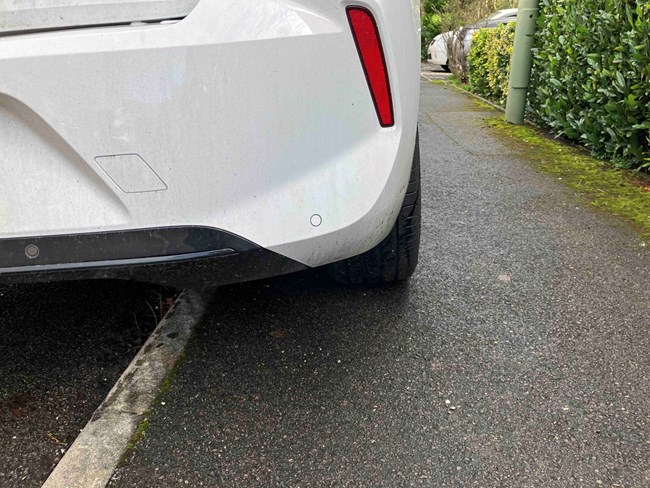We use cookies to ensure that we give you the best experience on our website. If you continue without changing your settings, we will assume that you are happy to receive all cookies on the Business Car website. However, if you would like to, you can change your cookies at any time

The start point for the best source of fleet information |
Research reveals support for pavement parking measures
Date: 15 February 2024 | Author: Sean Keywood

Majority support for new measures to prevent parking on pavements has been revealed by a survey by Startline Motor Finance.
The survey revealed 62% of respondents thought pavement parking should be banned.
The announcement of the survey result followed the publication of a report by the Local Government Association (LGA) on the issue.
The LGA has said powers to enforce pavement parking bans should be extended to all councils across England.
The Startline Motor Finance survey found that 28% of respondents thought parking on pavements was 'just lazy', while 23% believed that motorists should leave the way clear for pedestrians, and 21% called it 'annoying'.
However, 24% said it was often possible to park on pavements and still leave space for pedestrians and 14% defended themselves by insisting they only park on the pavement to drop someone off or pop into a shop.
Startline Motor Finance CEO Paul Burgess said: "We asked this question following the introduction of a more 'zero tolerance' approach to pavement parking in Scotland and our research shows it would be popular with the majority of people right across the UK.
"The research clearly shows quite a lot of annoyance around pavement parking and drivers not leaving enough space for pedestrians to get by, which is understandable, although there is some pushback from drivers who believe you can pavement park responsibly.
"Our suspicion is that many people don't realise that parking on the pavement is illegal almost everywhere unless signage says it is allowed, and there is probably an argument for making the situation clearer, which is effectively what the LGA is demanding."
The LGA, which represents councils in England and Wales, argues that vehicles parked on pavements caused problems for pedestrians, including older and disabled people, and parents with pushchairs and younger children, potentially forcing them to step into traffic.
It said that the UK Government had held a consultation on the issue which ended over three years ago, but an announcement was yet to be made.
A pavement parking ban has just started to be enforced in Scotland, and a ban also applies in London, where councils have powers to exempt certain roads. A consultation is also set to take place in Wales on the issue.
The LGA's report, produced by Sustrans and Transport for All, also highlights how parking on the pavement can crack and damage the surface, creating trip and injury hazards as well as leading to costly repairs and maintenance.
LGA transport spokesperson Darren Rodwell said: "Pavement parking is one of the biggest complaints from pedestrians, but three years on, councils outside of London still do not have the powers they need to tackle this scourge.
"Vulnerable and disabled people, including wheelchair users as well as parents with pushchairs are forced into the road due to some drivers' inconsiderate parking, presenting a real hazard and potential danger to life.
"Repairing kerbs and pavements damaged by pavement parking is also expensive and this funding could be better used to resurface our roads and pavements, support local buses and provide more suitable parking.
"If we are to meet the government's ambition for half of all trips in England's towns and cities to be walked, wheeled or cycled by 2030, then it makes sense to give councils across the country the same powers as in the capital, making our streets safer and footpaths open for everyone."











